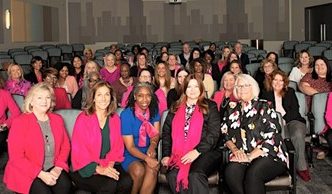The National Endowment for Financial Education released results from its annual survey on consumer expectations, finding that almost eight out of 10 (79 percent) of U.S. adults will set a financial New Year’s resolution for 2019. A 10 percent increase over last year’s survey, the findings show steady growth in Americans who are looking to bolster their financial health.
In a trend that has continued year over year, Americans also indicate both an understanding of the importance of savings, yet have significant stress over their own ability to save money. In fact, more than half (51 percent) indicated that saving money was their biggest cause of financial stress, beating debt (46 percent) as the top financial stressor this year. The survey was conducted online in December 2018 by The Harris Poll on behalf of NEFE among more than 2,000 U.S. adults.
According to the survey, 68 percent of U.S. adults admit to experiencing an unexpected financial setback in 2018, an increase from last year’s survey (63 percent). Transportation issues (23 percent), housing repairs/maintenance (21 percent), and medical care for an injury or illness, and inability to keep up with debt/falling behind on bill payments (both 17 percent) topped the list. Among those who say something causes them financial stress, 42 percent say not having to worry about saving would give them the most financial relief.
The latest annual survey from NEFE discovers a number of additional findings for Americans:
- Quality of Financial Life: Overall, a majority of adults (51 percent) feel the current quality of their financial life is about what they expect it to be, and 21 percent say it’s better than expected. However, 28 percent of U.S. adults say the current quality of their financial life is worse than they expected.
- Gender Disparities: Women (32 percent) are significantly more likely than men (25 percent) to feel the current quality of their financial life is worse than they expected. Women (51 percent) also are significantly more likely than men (42 percent) to say they are living paycheck to paycheck.
- Top Anticipated Expenses: The top three expected expenses for 2019 are paying off debt (37 percent), transportation expenses (32 percent), and expenses related to the home — excluding mortgage (29 percent).
- Paying for Setbacks: If faced with a major unexpected expense today, about a third of U.S. adults would pay for it using cash (33 percent), followed by credit cards (32 percent), and emergency savings (30 percent).
- Perceived Impact of Tax Law: Nearly four in 10 Americans (38 percent) who plan to file 2018 taxes expect to pay the same amount in income taxes — only 20 percent expect to pay less, and 17 percent expect to pay more as a result of recent federal income tax law changes.
- Effect of Market Volatility: Nearly two in five Americans (38 percent) say that recent financial market volatility doesn’t bother them because they understand that volatility is part of the financial markets. About a quarter (26 percent) say that it stresses them out leading to further worry about their future financial security.





